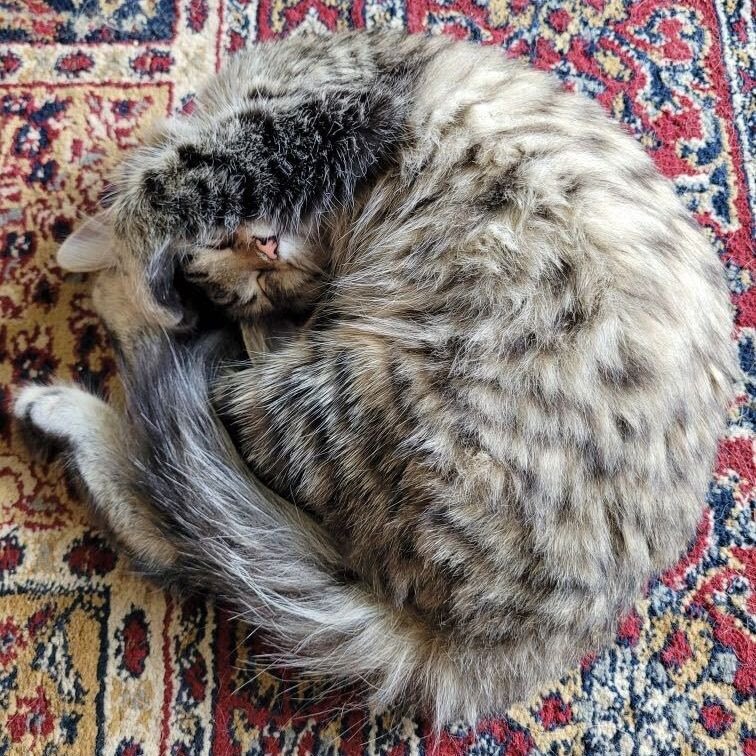Using podcasting as a teaching tool
We publish Vocal Fridays every week, straight to your inbox.
Subscribe below to get it straight outta the frying pan!
I needed a good laugh this week...
And when I need a good laugh, I turn to one of my favourite podcasts.
Who? Weekly is hosted by Bobby Finger and Lindsey Weber. This is my second time mentioning it in this newsletter’s young life, so you know my love is true. When I saw that the New Yorker wrote it up this week, I was thrilled. Wholigans, we really are livin la vida laptop. Crunch crunch.
I think that one of the reasons podcasts make me actually laugh out loud more than movies or TV is because a good conversational podcast can feel like you’re listening to your funniest, most interesting friends. In a year when face-to-face time with my own friends has been so limited, podcasts like Who? Weekly (and the now-retired Thirst Aid Kit, RIP) have been a salve.
Today on Vocal Fridays, we’ve got a fry-up of offerings. It’s a big juicy steak of a newsletter. We have not one… not two… not three… but FOUR jobs to share. Some are a little shrimpy (short and sweet) and some are beefy (full-time, permanent positions). Some may even call it surf-and-turf 🥩 🦐
This week on The Big Fry, I’ll share what I learned from using podcasting as a teaching tool with my students.
When I’m not making podcasts, I teach after-school Jewish school. I’ve been doing it on and off since 2015, and I love having it in the mix of my job mosaic. It allows me to use totally different skills—except when I make podcasts with my students...in which case, it uses exactly the same skills!
Teaching from home during the pandemic meant I couldn’t rely on the usual arts and crafts activities. So, equipped with Zoom and a Zoom recorder, I set out to try to capture what it was like to be a kid during this exceptionally strange year.
Making audio projects with children can be fun and rewarding and you don’t need to be a podcast producer to do it! Whether you’re a teacher, parent, or caregiver, this is the kind of project that can yield sweet and funny results and is a social-distancing friendly outlet for creativity. Even if you’re casually babysitting—as it becomes safer to socialize with others and your sibling/cousin/friend drops their kid off with you so they can have some time to themselves—a few hours is all you need to make some audio magic.
Set very clear boundaries around equipment
Our first few classes were outside, so I took a few recordings outdoors, in person. These were not ideal recording conditions; I didn’t want to stick the mic right in their face (because, you know, 6 feet), and there was a ton of environmental noise. A few students asked me if they could hold the microphone or the recorder, and to them I said:
Nope!
If you’re working in a school that has its own equipment (and insurance), it’s great for kids to learn to play around with it. But if you’re using your own stuff, like I was, and you’re trying to teach them about storytelling, it's useful to set expectations that only the grown up gets to touch the equipment.
If you’re recording with people not in your immediate bubble, you may want to use a shotgun mic so that you don’t need to get so close to them. I used a dynamic held at a bit too far at a distance, so the sound wasn’t as clear as I’d normally want. But it worked well enough for our purposes.
Let them guide the content
But give them parameters! Constraints are crucial to creative work. One set of students I worked with wanted to do an advice podcast—I was surprised at how open they were with the microphone in front of them. I think one of the reasons they were able to be so candid was because they already had a trusting relationship with each other. As producers or facilitators, it’s our job to maintain that trust and safe space.
Play them other children-led podcasts
Tai Asks Why is a great example. Youth Radio would be good for teenagers, as would Radio Rookies.
Some of Radio Free Roscoe is up on YouTube (shout out to Skye Sweetnam for the banger of a theme song) and is *perfect* inspo for a budding radio-wave anarchist.
Save funny bits for a blooper reel
This is pretty self explanatory, and takes very little time to put together. There will be much fodder for inside jokes that should long outlast your time making the podcast.
Have a listening party
Whether it’s over Zoom or in person, make it feel like an event! My students were SO excited to hear themselves and it was extremely cute. Highly recommend, 10/10.
jobs hot from the fryer
The X (Ryerson) School of Journalism* is hiring for a whole bunch of instructor positions, including three radio and/or podcasting courses! Deadline to apply is June 11.
*Some staff, students and alumni are starting to refer to Ryerson University as X University. Egerton Ryerson, the school’s namesake, was a key figure in designing the residential school system and many people have been calling for the university to change its name. Anne Spice, an assistant professor of Indigenous environmental knowledges at the university, wrote about the negative impact of his legacy in an article for the Globe back in May. The 2021 Review of Journalism also decided to omit his name from the magazine, and you can read their statement here.
The School of Journalism announced on Tuesday that the names of their masthead publications will be changed going forward.
Another week, another full-time permanent position at CBC Radio!
The Sunday Magazine is looking for a new producer/director.
If you have 5 to 7 years of experience and are ready for the thrill of directing a live, national show, apply by June 10.
Pacific Content is hiring a producer for a three-month contract.
This is the kind of gig that’s great for someone just starting out, whether you’re a student or recent graduate, and they’re hiring remotely so you absolutely do not have to live in Toronto for this one.
Three months might not seem like a long time, but you’re making connections that can lead to something more permanent down the road.
I believe in you!
The Frequency Podcast Network is hiring for an audience development lead. If you love podcasts, don’t necessarily want to make them, but definitely want to work on getting them out in the world, audience development jobs could be great for you. Here’s a free tip for your interview: tell them you want to start a newsletter. You’re welcome, call me when you get the gig.
hey freelancer!
AIR Media is looking for feedback on 2021 rate guides.
You can book a time with managing director Amanda Hickman, or send her an email at amanda@airmedia.org with questions.
The Media Co-op wants your pitches for their Trans Mountains Resistance series.
They’re looking for written articles, but also audio, video, and photojournalism.
Deadline is rolling, but “to have a good chance of having your pitch considered, please submit it by June 30, 2021.”
Here’s how to pitch to them, and here are their contributor guidelines.
NTS Independent Radio is looking for new residents!
Workman Arts is inviting proposals for online courses for their 2021/2022 training program! From their call: “Workman Arts provides multi-disciplinary, professional art workshops for and by artists with lived experience of mental health and/or addictions issues. Workman Arts aims to support member artists through community support, access to free studio space, materials, equipment, free art training as well as professional development and presentation opportunities.”
what we’re listening to
I first heard about All My Relations, a podcast by Matika Wilbur (Swinomish and Tulalip) and Adrienne Keene (Cherokee Nation), when Vocal Fry producer Sabrina Brathwaite recommended it for Women’s Day. Their most recent episode, All My Loving Relations, looks at what love looks like in an Indigenous context, and the effects of colonial violence on love. It’s a warm, reflective episode, featuring conversations with Geraldine King (Anishnaabe), a First Nations scholar at Carleton University, and Aunty Jillene Joseph (Gros Ventre), the executive director of the Native Wellness Institute.
These are long episodes, mostly over an hour, so it’s a good listen for anyone who’s looking for some company, or those looking for conversations that explore all the complexities of Indigeneity. They write: “We want this space to be for everyone—for Native folks to laugh, to hear ourselves reflected, and give us a chance to think deeper about some of the biggest issues facing our communities, and for non-Native folks to listen and learn.”
What’s happening at Vocal Fry?
Well Said is BACK! This week, host Heather Reisman interviews Suleika Jaouad, author of the New York Times bestselling memoir, Between Two Kingdoms.
After graduating from college, at the age of 22, Jaouad moved to Paris to work as a paralegal. While she was there, she was diagnosed with a rare form of leukemia.
Reisman and Jaouad have a moving conversation about the four years Jaouad spent living in the kingdom of the sick, and what it was like finding her place among the living. You can listen on Apple Podcasts, Spotify, or wherever you get your podcasts.
Is YouTube poised to become the next Apple Podcasts? Digital producer Emily Latimer coming in hot with our latest blog post. And she was thrilled, because she got to write a bit about Frenemies, the guilty pleasure YouTube podcast she watches.
Emily interviewed Jeff Ulster, co-publisher of the Canadian Podcast Listener study and Chief Content and Technology Officer at The Podcast Exchange.
According to Jeff, Apple, YouTube, and Spotify are in "a three-way tie for platforms used most often now by regular podcast users."
Ok that’s all for this week!
We want to hear from you! What are you looking for in your podcast news? Let us know on Twitter, Instagram, or by email at info@vocalfrystudios.com.
Thanks to Emily Latimer for editing this newsletter, and to Katie Jensen for designing it.
We’ll see you again on June 11. Until then, here’s an update from senior producer Jay Cockburn’s cat, Leo.
Yours in friends and fries,
Michal





















